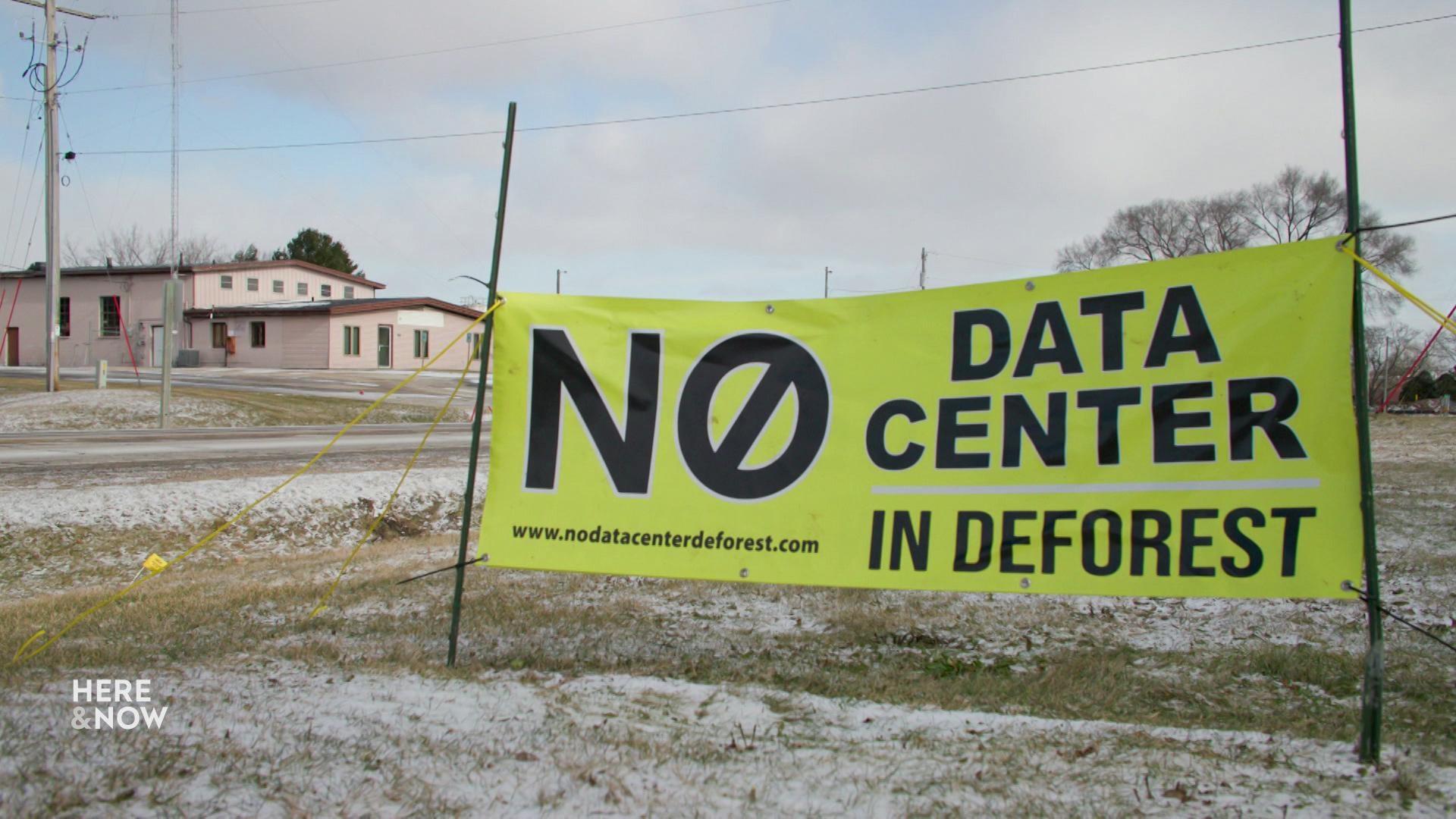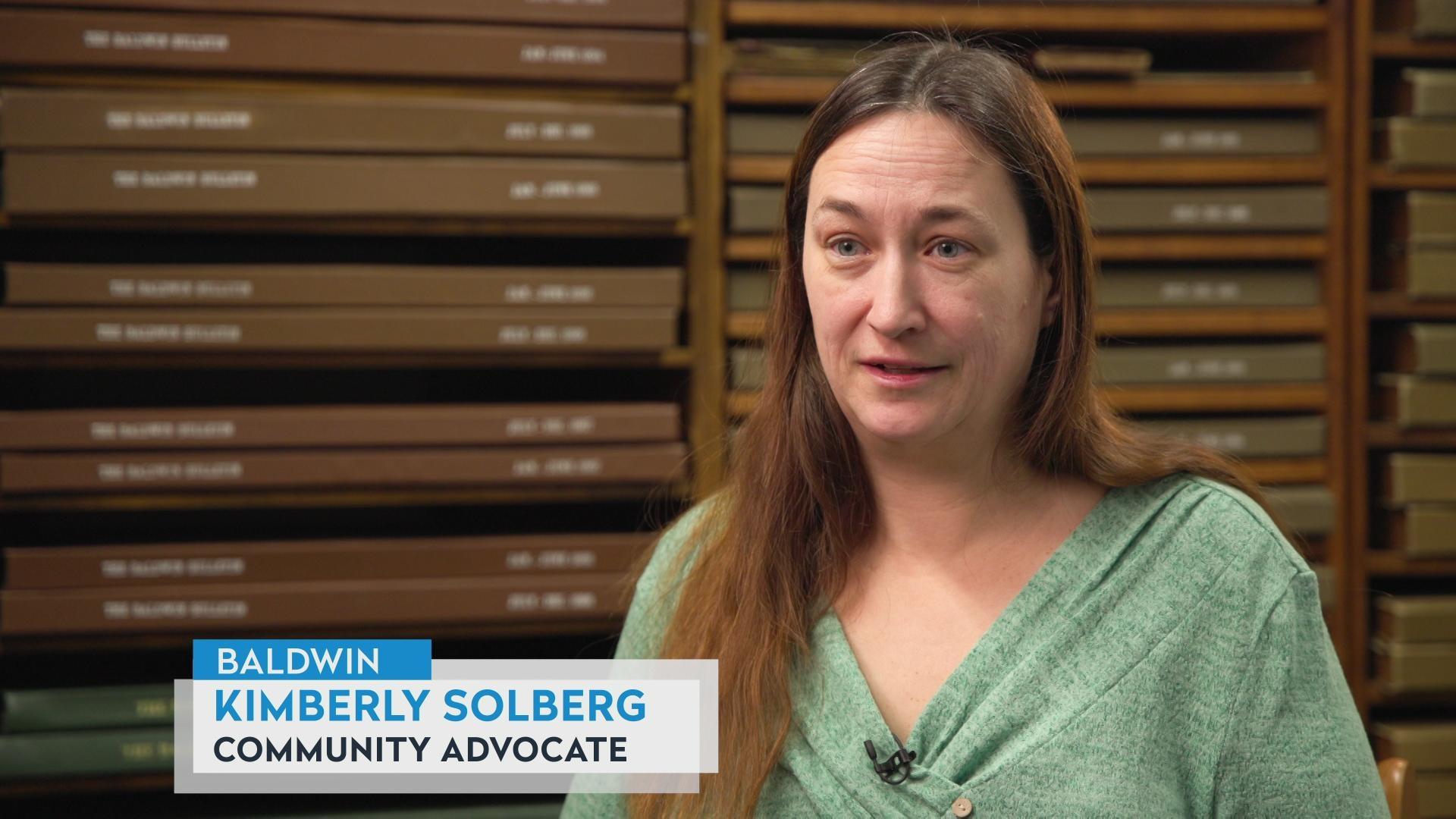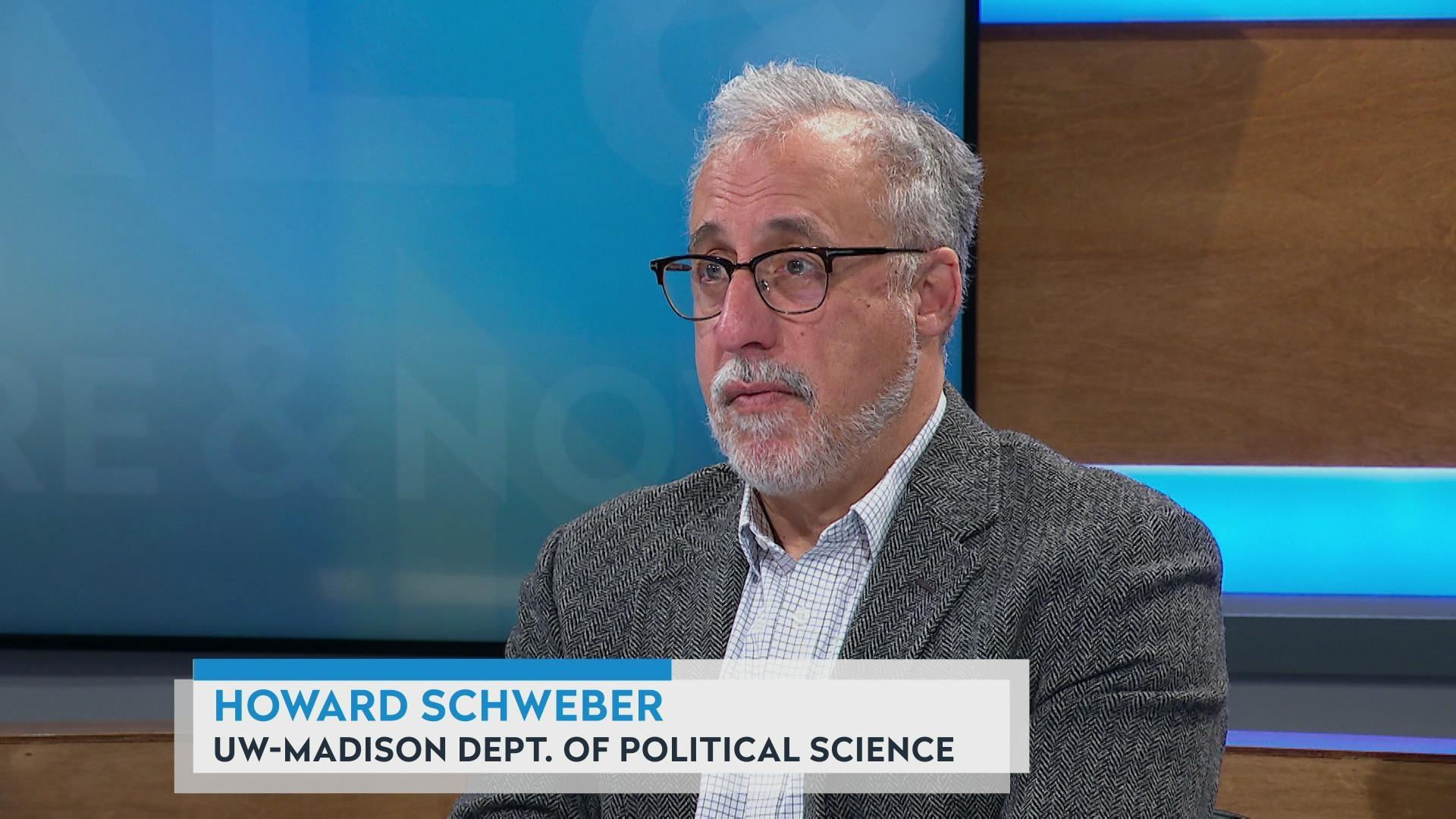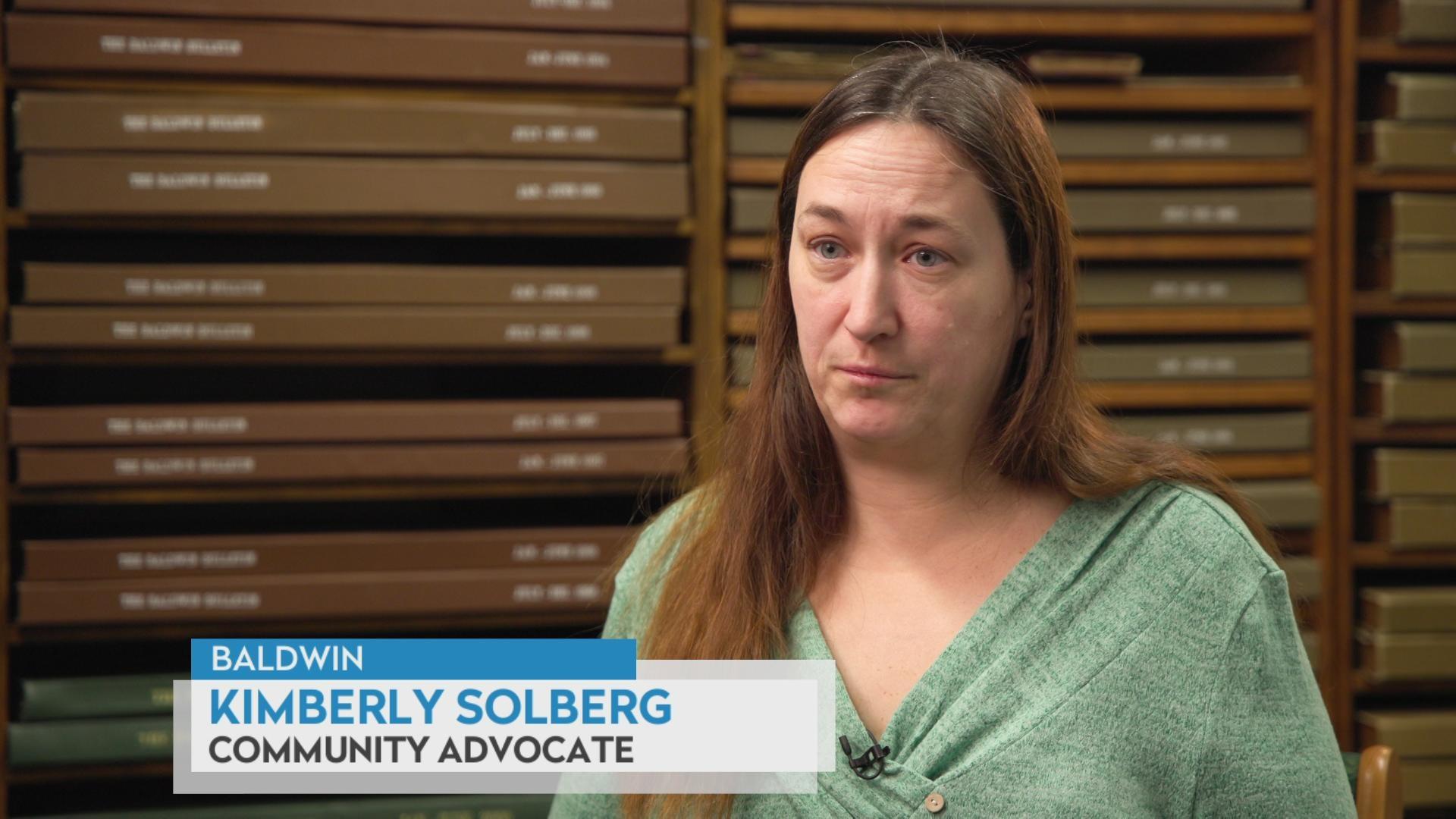Wisconsin prisons lag in treating substance use disorders
Many inmates in Wisconsin prisons seeking to recover from addiction face long waits for substance use disorder treatment as wrangling continues over resources for the state Department of Corrections.
By Aditi Debnath | Here & Now
June 12, 2024
Before the 2024 election, Wisconsin Public Radio is asking people through the America Amplified initiative about what elected officials could do to improve their communities. Star Rueth from Sparta reached out with a question about how addiction is treated for people in the state’s prison system. PBS Wisconsin’s “Here & Now” is collaborating with WPR to help respond to these questions.
“Some people don’t have anybody — and on your release day, you get your boxes and you are put out on the doorstep, like if you have a place to go or not,” said Amanda Church.
Church is a care provider at an assisted living facility in Monroe County, and a mother of two. She was released from the Taycheedah Correctional Institution in Fond du Lac in 2022 for drug-related offenses.
More than 6,600 people were released from Wisconsin prisons in 2023 — that’s roughly 550 every month. For those with substance use disorders, that re-entry period is critical.
“At the time of reentry, we know that rates of returning to use — to substance use — are very high. That in combination with someone having no really no tolerance puts them at super high risk for having an overdose if they return to use,” explained Dr. Elizabeth Salisbury-Afshar, an addiction medicine physician and professor at the University of Wisconsin School of Medicine and Public Health. She treats patients with substance use disorders at UW Health’s Behavioral Health and Recovery Clinic.
“If you compare rates of overdose in Wisconsin to national numbers, we are definitely one of the states with higher overdose rates,” she noted.
“I was naive to a lot of that: “‘Oh, just try this, you know, it’s not going to hurt you. You’ll never get addicted,'” Church said. “You believe that as a kid, that you have the willpower to not get stuck using those drugs. And it goes downhill from there — and fast.”
Less than 10% of people that complete the substance abuse treatment program operated by the Wisconsin Department of Corrections are reincarcerated during their first year of release, but there’s a massive waiting list to participate. Alisha Kraus, who is the director of program services for adult prisons, acknowledges the level of need.
“We understand that there’s a large number of our population that needs assistance in working through their substance use disorders,” said Kraus.
Roughly 845 people in the state’s prison facilities are enrolled in a substance use disorder treatment program, yet more than 11,000 people are on the waitlist.
“We would like to be able to serve every single person that we come into contact with at the highest level that they need in terms of intervention and more research,” Kraus added. “More resources would allow us to do that, more efficiently.”
In the 2023-25 state budget, the Republican-controlled Wisconsin Legislature declined to fund a proposal by Democratic Gov. Tony Evers for expanded substance use disorder treatment programs, which include mental health education and early release opportunities.
Detoxing abruptly in prison can be dangerous and ineffective in the long term.
“You’d have the chills and then you’d be hot, and you can’t get comfortable. Throwing up. Like, you’d get shaky. Just anything that made you uncomfortable,” Church shared. “You know, the headaches, the racing thoughts because you’re just starting to get your feelings back and like, you instantly go into that regret and shame and guilt and all that.”
Medication for opioid use disorder is one treatment the state Department of Corrections is trying to make more accessible. Salisbury-Afshar explains a couple of reasons why medications like methadone work.
“The first is we know these medications save lives. They are first-line treatments,” she said.
“A second reason is that while people are incarcerated, it is the legal responsibility of the jail or the prison, whatever environment someone is in, to provide adequate health care,” said Salisbury-Afshar.
“We’re piloting a medication assisted treatment program at one of our facilities in Milwaukee — the Milwaukee Secure Detention Facility, with plans already rolling out to expand that to other sites within the division,” said Kraus.
In the state budget, the Legislature provided more than $4.6 million to expand access to medication for opioid use disorder in prisons, different from the rejected proposal to expand programming.
“The third reason, I would say, is I just think this is morally imperative,” Salisbury-Afshar added.
Morally imperative, she said, because this medication that’s not widely available in prisons can reduce overdose deaths, continued drug use and reincarceration.
Church said she received medications meant to treat some of her withdrawal symptoms, but not her substance use disorder.
“They don’t have no sympathy for that,” she said. “They’re like, you know, you’re just a junkie, like, sit it out. That’s why you’re here and you’re a criminal. And a lot of the employees aren’t there to help you.”
Experts say people in recovery from substance use need continued support, safety, and community to continue their recovery.
“The only support you have is the other people that are going through the same thing as you,” said Church.
“Our peers, most of them feel like nobody cares, nobody understands,” said Demell Glenn, a peer support specialist at Just Dane, a non-profit that supports people affected by incarceration.
“If you’ve been through addiction, and you’ve been to prison for 15 years, and now you’re doing this, I want to know how you did that,” he said.
Glenn noted his own path to recovery could have started earlier if he’d had someone to relate to.
“I want to know how you got here, because I’ve been trying to do this for 20 years, and I’ve been failing for 20 years,” he said.
Glenn makes himself accessible as a lifeline to people who are in crisis and wanting to use again.
“I just let them know, like, ‘Hey, before you make that decision, call me, please.’ And I’ve had individuals call me like, ‘Hey, you know, I’m in a bad spot. I want to use, you know, this isn’t going right.’ And I’m like, ‘Well, where are you? Let’s talk,'” Glenn said.
For both Glenn and Church, recovery is an active choice to make every day.
“It’s hard to get out of that unless something dramatically changes your life. And getting caught was probably the best thing that happened to me,” said Church.
“Your contribution to this community is important,” Glenn said. “Way more important than addiction or incarceration.”
PBS Wisconsin is partnering with Wisconsin Public Radio and the America Amplified election reporting initiative. America Amplified is a collaboration among several dozen public radio stations across the United States funded by the Corporation for Public Broadcasting, focusing on what issues matter most to people in 2024.
PBS Wisconsin’s “Here & Now” is connecting with people and issues with the help of WPR to connect with and better serve Wisconsin’s voters. What information do you need about how to vote? What do you wish candidates were talking about? Tell us what issue matters most to you and your community here.
More reporting by Wisconsin Public Radio for the America Amplified initiative is available here.
 Passport
Passport











Follow Us